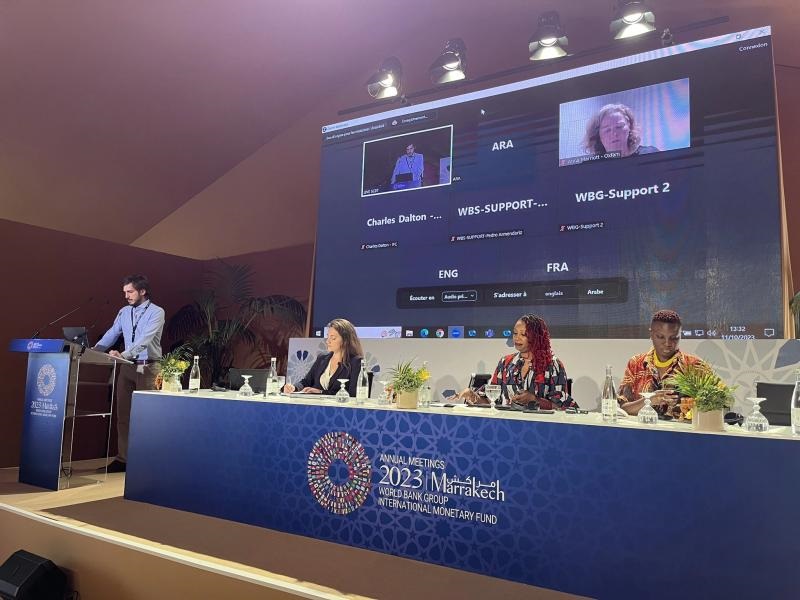
GI-ESCR exposes human rights impacts of development finance to for-profit hospitals and clinics
Between 9 and 13 October, the Global Initiative for Economic, Social and Cultural Rights (GI-ESCR) has participated in the Civil Society Policy Forum (CSPF) at the World Bank (WB) and International Monetary Fund (IMF) Annuals in Marrakech, Morocco. It is the first time that the WB-IMF Annuals take place in Africa, and GI-ESCR welcomed this important opportunity co-organising a critical panel entitled Development Finance to For-Profit Private Healthcare: What Implications for UHC, Human Rights and Gender Equality?
The panel reflects on the human rights impacts of for-profit healthcare funded by European governments and the World Bank Group. Rossella De Falco, Programme Officer on the Right to Health at GI-ESCR, discussed the human rights impacts of the commercialisation of healthcare. Rossella De Falco highlighted that market mechanisms in healthcare create the conditions for a healthcare system tiered based on socioeconomic status, fostering inequalities and fragmentation in quality. The intervention is based on the recently updated Compendium of United Nations Human Rights Treaty Bodies’ Statements on Private Actors in Healthcare as well as the policy brief The Commercialisation of Healthcare: a Glossary.
“Healthcare systems might be complex, but the evidence is clear. The most successful healthcare services in the world are public.” Rossella De Falco, Programme Officer on the Right to Health at GI-ESCR.

At the panel, Anna Marriott, Oxfam International, presented the findings of the report Sick Development, showing that expensive for-profit hospitals in the Global South deny care to patients, including for emergency cases, due to lack of financial means, or bankrupt them, with some even imprisoning patients who cannot afford their bills. Charles Dalton, Global Sector Specialist on Health at the International Finance Corporation (IFC), assured that the World Bank Group is taking the concerns raised seriously.
The other speakers were Allana Kembabazi, ISER, Wangari Kinoti, ActionAid and Olabukunola Williams, Akina Mama wa Afrika, and they discussed the gender and neocolonial dynamics within IFC health investments in Africa. Marco Angelo, Wemos, moderated the panel. GI-ESCR has worked on the problem of commercial healthcare in Sub-Saharan Africa through research and advocacy with local partners in Kenya and Nigeria.




